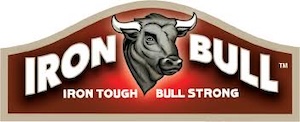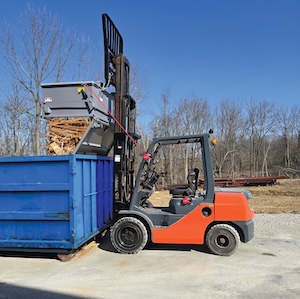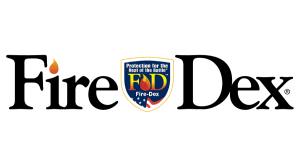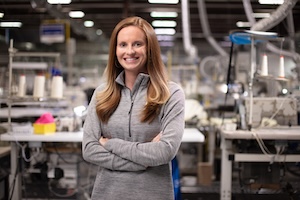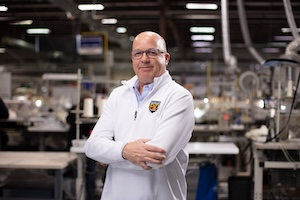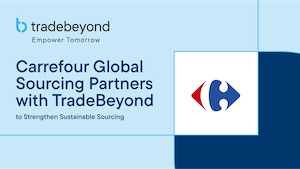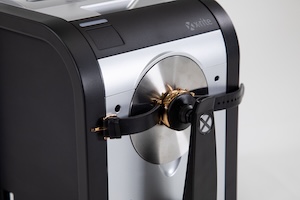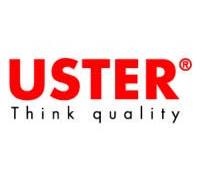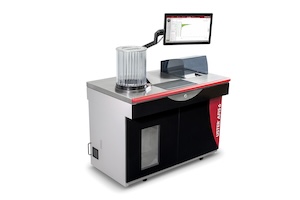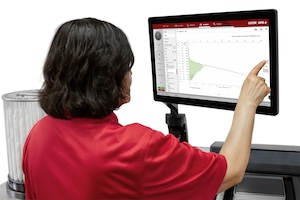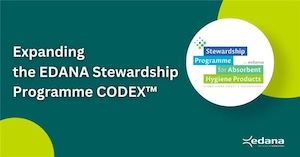 BRUSSELS — May 16, 2025 — EDANA is pleased to announce the expansion of the Stewardship Programme CODEX™, a key part of its voluntary industry initiative to ensure product safety, transparency, and consumer confidence. This expansion increases the number of trace chemicals covered in the CODEX, reinforcing the industry’s commitment to responsible stewardship and high safety standards.
BRUSSELS — May 16, 2025 — EDANA is pleased to announce the expansion of the Stewardship Programme CODEX™, a key part of its voluntary industry initiative to ensure product safety, transparency, and consumer confidence. This expansion increases the number of trace chemicals covered in the CODEX, reinforcing the industry’s commitment to responsible stewardship and high safety standards.
The CODEX™ is the core
The voluntary Stewardship Programme core is its CODEX, which features:
- An evolving list of trace chemicals, purposefully chosen by EDANA (including, but not limited to, PAHs, PCBs, dioxins, furans, phthalates, formaldehyde, metals). These are not intentionally used to manufacture absorbent hygiene products (AHPs) but may be present in trace amounts.
- Guidance values for each substance, based on existing related regulations, regulatory guidance, related existing standards or industry experience.
- Standardized consumer relevant test methods to evaluate products for possible traces of substances.
A Voluntary Commitment to Safety and Transparency
The EDANA Stewardship Programme was created to provide science-based guidance on the safety of absorbent hygiene products, including baby diapers, menstrual products, and incontinence products. As a voluntary initiative, it reflects the industry’s proactive approach in going beyond regulatory requirements to enhance trust and transparency.
By broadening the CODEX, EDANA and its members continue to support best practices in substance management and regulatory alignment.
Why This Expansion Matters
- More Chemicals Covered — The CODEX now includes a broader list of substances not to be present in AHP in a higher concentration than the respective guidance value. These are not intentionally used to manufacture AHPs but may be present in trace amounts.
- Enhanced Consumer Confidence — By voluntarily increasing substances, the industry demonstrates its commitment to ensuring safe and high-quality absorbent hygiene products. EDANA’s member companies keep safety at the very heart of what they do.
- Alignment with Best Practices — The expansion reflects the latest scientific knowledge and supports companies in staying ahead of regulatory developments. The voluntary CODEX™ represents a living program; it is a proactive work to keep adding substances.
The expansion of the EDANA Stewardship Programme CODEX is the result of ongoing collaboration with industry experts, scientists, and regulators, ensuring it remains a trusted reference for product stewardship.
Learn more about the EDANA Stewardship Programme CODEX in the following page: https://www.edana.org/how-we-take-action/edana-stewardship-programme-for-absorbent-hygiene-products?utm_source=press+release&utm_medium=media&utm_campaign=expanding+stewardship+programme+codex
Posted: May 16, 2025
Source: EDANA

